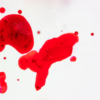Understanding Melasma and Its Ayurvedic Treatment
Understanding Melasma and Its Ayurvedic Treatment is a common skin condition characterized by brown or gray-brown patches, usually appearing on the face, particularly on the cheeks, forehead, nose, and chin. Often referred to as the “mask of pregnancy,” melasma can affect anyone but is more prevalent in women, especially during hormonal changes such as pregnancy or the use of birth control pills. While melasma is not harmful, its appearance can significantly impact self-esteem and confidence. Fortunately, Ayurveda, the ancient Indian system of medicine, offers holistic approaches to managing and treating melasma effectively.
What Causes Melasma?

Understanding the causes of melasma is crucial for effective treatment. Several factors contribute to the development of this skin condition:
- Hormonal Changes: Fluctuations in hormones, particularly estrogen and progesterone, can trigger melasma. This is often observed in pregnant women and those using hormonal contraceptives.
- Sun Exposure: Ultraviolet (UV) rays from the sun stimulate melanocytes (the cells that produce melanin) in the skin, leading to increased pigmentation.
- Genetic Predisposition: A family history of melasma can increase the likelihood of developing the condition.
- Certain Medications: Some medications, such as those that cause photosensitivity, can exacerbate melasma.
- Skin Type: Individuals with darker skin tones are more prone to melasma due to higher melanin production.
- Stress: Chronic stress can disrupt hormonal balance, potentially contributing to skin issues, including melasma.
Ayurvedic Perspective on Melasma
In Ayurveda, skin health is viewed as a reflection of overall health, both physically and emotionally. Ayurvedic practitioners believe that an imbalance in the body’s doshas (Vata, Pitta, and Kapha) can lead to skin disorders, including melasma. The Pitta dosha, associated with heat and metabolism, plays a crucial role in skin pigmentation.
Key Principles of Ayurveda
- Balance: Ayurveda emphasizes the importance of balancing the doshas to achieve optimal health.
- Holistic Approach: Treatment encompasses the mind, body, and spirit, recognizing the interconnectedness of physical and emotional health.
- Natural Remedies: Ayurveda utilizes herbs, dietary modifications, and lifestyle changes to promote healing without harsh chemicals.
Ayurvedic Remedies for Melasma
1. Herbal Treatments
Several herbs are known for their skin-lightening properties and can help manage melasma:
- Turmeric (Curcuma longa): This powerful herb has anti-inflammatory and antioxidant properties. It can help reduce pigmentation when applied topically or consumed as a supplement.
- Licorice (Glycyrrhiza glabra): Licorice extract contains glabridin, which inhibits melanin production. It is often used in creams and can also be taken as a supplement.
- Neem (Azadirachta indica): Known for its antimicrobial properties, neem can help improve skin health and reduce pigmentation.
- Brahmi (Bacopa monnieri): Brahmi is excellent for soothing the skin and reducing stress, which can indirectly help with melasma.
- Aloe Vera: Aloe vera gel has soothing properties and can help lighten skin over time when applied regularly.
2. Dietary Changes
A well-balanced diet is essential for skin health. Include the following:
- Hydrating Foods: Consume fruits and vegetables with high water content, such as cucumbers, watermelon, and oranges.
- Antioxidant-Rich Foods: Include berries, nuts, and leafy greens to combat oxidative stress.
- Healthy Fats: Omega-3 fatty acids found in fish, flaxseeds, and walnuts promote skin health.
- Limit Sugar and Processed Foods: These can exacerbate inflammation and hormonal imbalances.
3. Lifestyle Modifications
- Sun Protection: Always apply sunscreen with at least SPF 30 when going outside, even on cloudy days. Protective clothing and hats can also help shield your skin from harmful UV rays.
- Stress Management: Practices such as yoga, meditation, and deep breathing exercises can help balance hormones and improve overall skin health.
- Adequate Sleep: Ensure you get enough rest to allow your body to heal and regenerate.
4. Ayurvedic Treatments
- Panchakarma: This is a detoxification process in Ayurveda that involves various therapeutic treatments to cleanse the body and restore balance. It can help remove toxins that may contribute to skin issues.
- Facial Treatments: Ayurvedic facials using natural ingredients like sandalwood, rose water, and yogurt can nourish the skin and reduce pigmentation.
DIY Ayurvedic Remedies for Melasma
If you’re interested in trying some homemade remedies, here are a few simple recipes:
1. Turmeric and Yogurt Mask
Ingredients:
- 1 tablespoon turmeric powder
- 2 tablespoons plain yogurt
Instructions:
- Mix the turmeric powder and yogurt to form a smooth paste.
- Apply to the affected areas and leave it on for 20-30 minutes.
- Rinse off with lukewarm water.
2. Licorice and Aloe Vera Gel
Ingredients:
- 1 tablespoon licorice powder
- 2 tablespoons aloe vera gel
Instructions:
- Mix licorice powder with aloe vera gel.
- Apply to the affected areas and let it sit for 30 minutes before rinsing.
3. Neem and Tulsi Paste
Ingredients:
- A handful of neem leaves
- A handful of tulsi (holy basil) leaves
Instructions:
- Blend neem and tulsi leaves into a paste.
- Apply it to the affected areas and leave for 30 minutes before washing off.
Conclusion
Melasma can be a challenging condition to manage, but with a holistic approach rooted in Ayurveda, it is possible to reduce its appearance and promote healthy skin. Embracing natural remedies, making dietary changes, and incorporating stress management techniques can create a synergistic effect that supports overall well-being.
Remember that consistency is key when using Ayurvedic treatments, and it’s always advisable to consult with an Ayurvedic practitioner to tailor a plan specific to your needs. With patience and dedication, achieving clearer and healthier skin is within reach. Embrace the journey to self-care and wellness, and let your natural beauty shine through!








Leave a reply